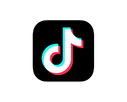A functional aid is an individual hand or arm tool that makes it easier for you to perform a specific activity (e.g. eating, cycling, etc.).
We train you in the daily use of your functional aid.
Make an appointment over the phone or send us a message!

Functional support for hands
Aids for everyday life, music and sports
Personal functional aids are used to treat amputations or congenital deformities in the upper extremities. Primarily, they fulfil the purpose of a functional tool that is intended to perform a frequently recurring activity. The aim of these special aids is to enable a desired function, such as eating or writing, but also playing an instrument or practicing a sport.
According to your individual requirements, we can basically build any conceivable aid - from a violin aid to a fishing aid. Even aids that combine two functions are possible (e.g. eating and writing aid in one).

Let yourself be inspired! We follow many interesting patients during their Pohlig appointment and give you personal insights.

For those who want to delve even deeper into the subject, we have a suitable video for almost every area of treatment!

Take a look behind the scenes at Pohlig and learn about different health conditions and our innovative assistive technology solutions!

Sometimes funny, sometimes explanatory, sometimes emotional - but above all always entertaining: our videos on TikTok!
Functional aids for
everyday life
Eating, writing, cycling or other activities you do every day: we have the right tool for you!

With a steering aid for bicycles, most children can learn to cycle despite an arm or hand deformity. The custom-made tool compensates for the lack of arm length and restores a proper ability to guide or steer. A steering aid can basically be mounted on any bicycle, balance bike or tricycle.
The aid can be fixed to any standard handlebar using a special clamping device. The fist-like handlebar fixation is connected to the shaft via a rod. The shaft is made of silicone and individually adapted to the user's residual limb.
For little Vincent, a great wish has been fulfilled: Although he lacks both forearms, thanks to his new steering aid, he can finally ride a balance bike!

An eating aid offers the option of holding utensils such as a fork or spoon. The use of a universal adapter means that different utensils can be used and easily exchanged.
The position of the eating aid is adjusted on the user's residual limb so that guiding the cutlery to the mouth works without any problems. Nevertheless, we recommend additional physiotherapy to train the use of the aid in everyday life.

A silicone writing aid allows you to guide pens safely. Thanks to the elastic material properties, pins with different diameters can be used. Of course, there are also writing aids for typing on a PC keyboard.
As a rule, patients are mainly provided with a writing aid if there is a deformity on both the left and the right hand. As soon as only one side is affected, the remaining healthy hand is normally used for writing or painting.
Functional aid for
making music
Basically, we can build you an individual aid for making music for almost any instrument!

Enya wanted to learn violin as a very little girl. Because she has dysmelia on her left arm, it was impossible for her to hold the violin bow. We have created a stylish violin aid for Enya – in purple and pink with an integrated clef symbol.
In principle, we can build a suitable aid for every musical instrument that can be adapted to the user’s hand or stump. In this way, even children, adolescents and adults with dysmelia or amputation can play or learn an instrument.
Of course, depending on the instrument, certain physical conditions must be present on the affected arm. In most cases, the musician's aid takes over a holding function (e.g. of the drumstick or the violin bow). If only a single finger needs to be compensated, the music aid can also be used to perform more demanding functions on the instrument, such as pressing a key.
At our MusikCamp, we showed children and young people with amputations or hand deformities how they can play instruments despite their physical limitations. How does that work? With individually adapted music-making aids, which our orthopedic technicians made for the children in a very short time. Afterwards, the participants of the Music Camp had three days to test their instruments to their heart's content with the new aid.
Functional aid for
doing sports
We build you an orthopedic aid for your favorite sport. This tool will be optimally adapted to your individual requirements!
Are sports an important part of your life? We will do our best to find a suitable solution for you so that you can practice your sport despite a missing or malformed hand. We have already built a wide variety of sports aids:
- basketball aids
- skiing aids
- table tennis aids
- swimming aids
- riding aids
- and much more.
Usually, an individual aid for sport performs the function of guiding or holding (e.g. the fishing rod, the racket, the ski pole, etc.).
Nick has dysmelia on his right hand. Despite this disability, he wants to practice his favorite sport, archery. We built him a silicone sports aid that he can use to string his bow and shoot the arrow at the right time.
At the age of 30, Martin breaks his neck. Since then, he has been paralyzed from the chest down and is likely to be wheelchair-bound for life. Since he has no finger function and only limited arm function, it initially seems impossible for the young man to ever pursue his great passion – fly fishing – after his accident again. How is this possible if he can't hold the fishing rod or the string, let alone turn the reel? But Martin doesn't give up. For fifteen years he searches for a way to grab the rod – unfortunately to no avail. Then the fly fisherman finally finds us. We manufacture a fly fishing aid for Martin.













